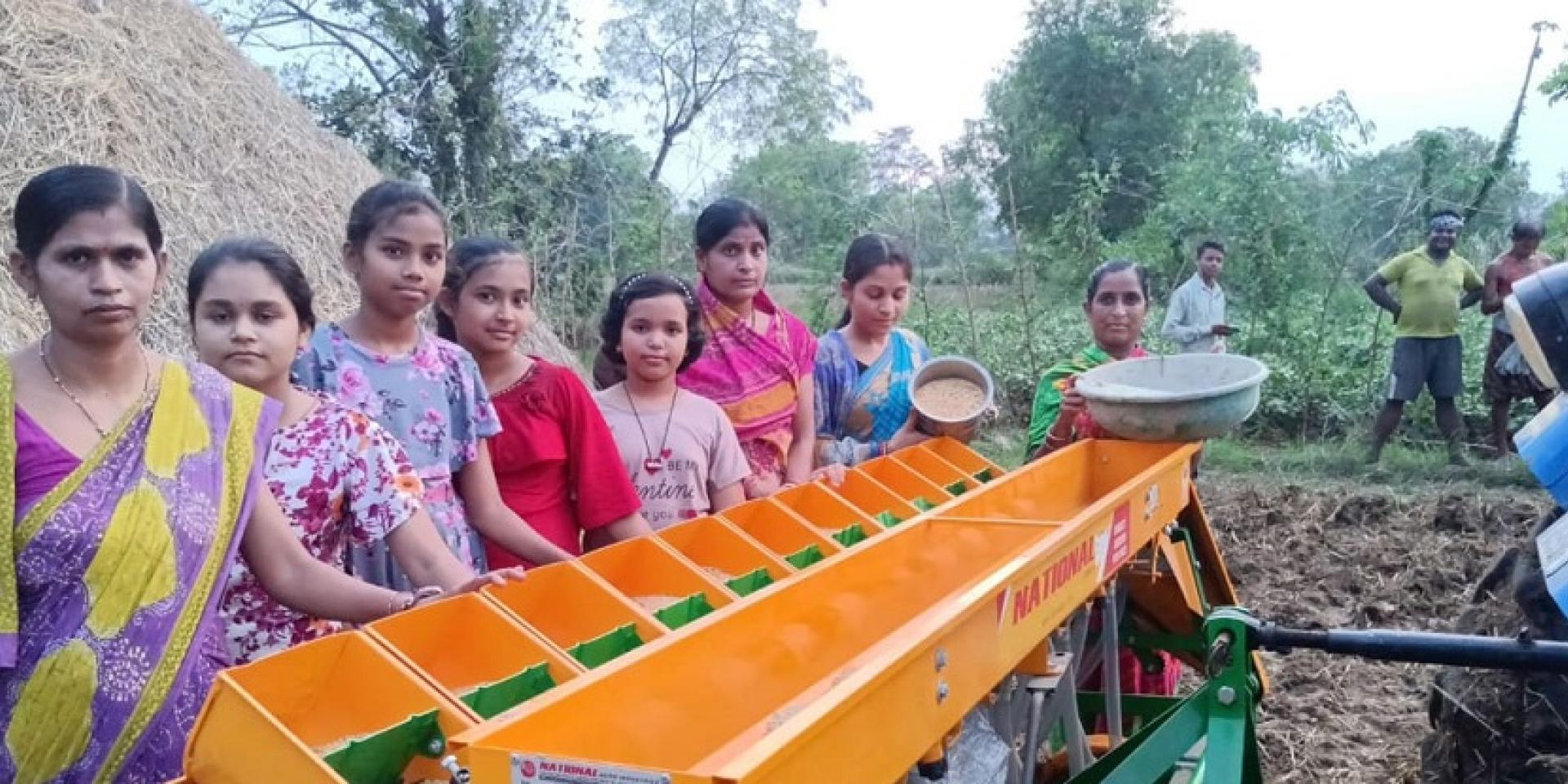A blueprint for women’s empowerment and women-led agricultural transformation
 Photo: IRRI
Photo: IRRI
Access to quality seeds by smallholder farmers has always been a constraint to varietal diffusion. It takes significant time to produce and distribute seeds of new varieties evaluated through the existing network. As a part of the seed system strengthening initiative in Bargarh, the Durgeswari Self-Help Group (SHG) in Odagaon Village, in the district of Bargarh, Odisha was trained in quality seed production, seed certification and regulatory compliance, and seed marketing. This case study highlights the journey of SHG’s participation from varietal trials to seed production and the promotion of direct-seeded rice.
The district of Bargarh is popularly known as the rice bowl of Odisha as it is one of the largest rice suppliers in the state, with an annual production of around 6,00,000 metric tons. However, farmers in the district must transition to sustainable food production by embracing new agricultural technologies and rice varieties to meet the growing demand.
Although the seed replacement rate in Bargarh is higher than the state’s average, there is a glaring gap in the market demand for and the supply of rice varieties and seeds. Some of the older but widely grown rice varieties in the district—such as Jamuna, MTU 1010, and MTU 1001—need to be replaced with newer varieties with higher yield and head rice recovery and suitable maturity duration.